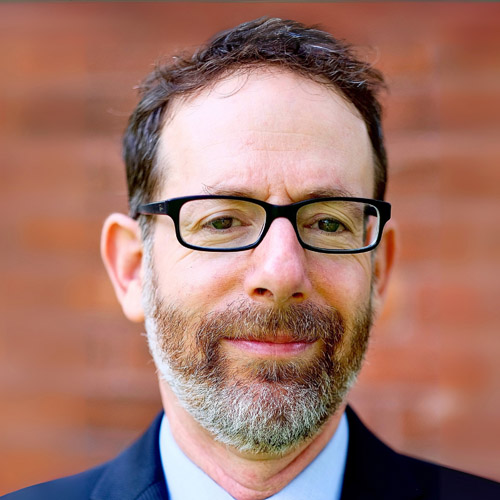Best Practices in the Evaluation of Competence to Stand Trial in Juveniles
Presented by: Ivan Kruh, PhD
 This on-demand professional training program on Best Practices in the Evaluation of Competence to Stand Trial in Juveniles is presented by Ivan Kruh, PhD. This badge-earning program can be shared digitally on platforms like LinkedIn or your resume and counts towards a certificate. Enroll in this program to earn credit towards Juvenile Forensic Assessment Certificate and share your new digital credentials with prospective employers and colleagues.
This on-demand professional training program on Best Practices in the Evaluation of Competence to Stand Trial in Juveniles is presented by Ivan Kruh, PhD. This badge-earning program can be shared digitally on platforms like LinkedIn or your resume and counts towards a certificate. Enroll in this program to earn credit towards Juvenile Forensic Assessment Certificate and share your new digital credentials with prospective employers and colleagues.
In recent years, there has been an increasing focus upon the competence to proceed of juveniles being adjudicated in juvenile and adult courts. This program focuses on conducting juvenile adjudicative competence evaluations that meet best practice standards. The use of cases to highlight relevant issues is emphasized, and the training includes activities to assist participants in honing their interviewing, record reviewing, data interpretation, and report writing skills.
The program covers foundational issues, including the evolution of legislation regarding juvenile competence and differences in legislation across states. The manner in which these legal standards can be translated into measurable forensic concepts is discussed, with a focus on how these concepts differ between juvenile and adult cases. The current empirical literature relevant to juvenile adjudicative competence is reviewed, with a particular focus on the intersection of adolescent development and court-related functioning. All of this background set the stage for a detailed discussion of conducting juvenile adjudicative competence evaluations. Preparation for the evaluation and the data collection process is examined, with a particular focus upon developmentally sensitive competence interviewing, the role of available Forensic Assessment Instruments in juvenile adjudicative competence evaluations, and the importance of third-party corroboration. Methods for interpretation and integration of data are presented, as well as strategies for effective communication of findings. Throughout this discussion, there is a focus upon sensitivity to functional limitations based on normal child development and developmental psychopathology. Juvenile competence remediation is also highlighted.
Upon completion of this training, participants will be able to:
Key topics covered in this training include:
Foundational
Participants learn the foundational issues of juvenile adjudicative competence evaluations
Legal
Participants learn legal standards and measurable forensic concepts and how they differ in juvenile and adult cases
Preparation
Participants learn about the preparation for the evaluation and the data collection process

Palo Alto University, Continuing & Professional Studies (CONCEPT) is approved by, recognized by, or maintains sponsorship provider status with the following boards and agencies. We maintain responsibility for all content in our CE/CPD programs. For more information, visit here.
American Psychological Association (APA): Approved sponsor of continuing education for psychologists.
Association of Social Work Boards (ASWB): Approved continuing education provider (ACE program, Provider #1480), 11/22/2023–11/22/2026.
Canadian Psychological Association (CPA): Approved to sponsor continuing education for psychologists.
National Board for Certified Counselors (NBCC): Approved Continuing Education Provider (ACEP No. 7190).
Palo Alto University, Continuing and Professional Studies (CONCEPT) is approved by the American Psychological Association to sponsor continuing education for psychologists. Palo Alto University, Continuing and Professional Studies (CONCEPT) maintains responsibility for this program and its content. Palo Alto University, Continuing and Professional Studies (CONCEPT), is approved by the Canadian Psychological Association to offer continuing education for psychologists. Palo Alto University, Continuing and Professional Studies (CONCEPT), SW CPE is recognized by the New York State Education Department’s State Board for Social Work as an approved provider of continuing education for licensed social workers #SW-0356 and the New York State Education Department’s State Board for Mental Health Practitioners as an approved provider of continuing education for licensed mental health counselors. #MHC-0073. Palo Alto University, Continuing and Professional Studies (CONCEPT) has been approved by NBCC as an Approved Continuing Education Provider, ACEP No. 6811. Programs that do not qualify for NBCC credit are clearly identified. CONCEPT Professional Training, #1480, is approved to offer social work continuing education by the Association of Social Work Boards (ASWB) Approved Continuing Education (ACE) program. Organizations, not individual courses, are approved as ACE providers. State and provincial regulatory boards have the final authority to determine whether an individual course may be accepted for continuing education credit. CONCEPT Professional Training maintains responsibility for this course. ACE provider approval period: 11/22/23-11/22/26. Social workers completing this course receive (clinical or social work ethics) continuing education credits.